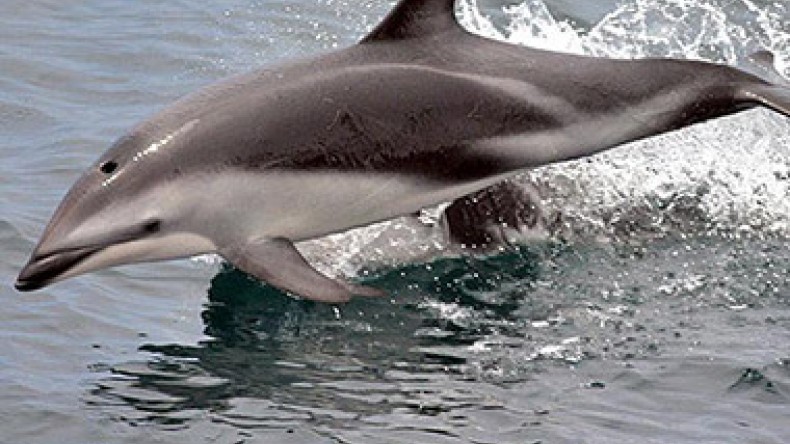
Dolphins killed for shark bait in Peru
Off Peru's Pacific coast, thousands of dolphins are being slaughtered to be used solely as shark bait -- despite the practice being outlawed by the South American country, CNN reported.
The London-based Ecologist Film Unit recently recorded one of the hunts in an undercover investigation and released its material.
On a crisp, sunny day, the group joins a fishing vessel as it goes through rough water riding closer and closer to dusky dolphins swimming under the ship's bow. The crew aims to plunge a harpoon into the pod, assuring it travels all the way through the body of one of the mammals.
Bleeding profusely, the dolphin is hauled on board and almost immediately dies on the deck of the vessel. With his sharpened knife, a Peruvian fisherman then peels the skin off the dolphin's back and carefully cuts the severed body into thin slices.
Even though dolphin killings have been outlawed by Peru's legislature since 1996, Stefan Austermuhle, executive director of the animal conservation group Mundo Azul, said fishermen have continued to target the mammals. He estimated more than 10,000 dolphins are being killed every year in Peruvian waters.
Despite the law prohibiting the human consumption and sales of dolphin meat, Mudo Azul asserts there's been weak law enforcement and lack of awareness.
"In recent years, there's been an upsurge in the targeting of sharks. The shark meat is predominantly consumed within Peru, but the fins we're told are being exported to the Far East for use as shark fin soup," said Jim Wickens, an investigative journalist with the Ecologist Film Unit. He witnessed the scene along with cameraman Alexander Reynoso who recorded the harpooning of the dolphins.
Wickens, in cooperation with the Pulitzer Center for Crisis Reporting, collaborated with Mundo Azul to conduct the undercover investigation by placing informants aboard the fishing vessels for a week.
"We were living in very difficult conditions through really quite rough weather and having to eat and sleep for some days actually next to the dismembered carcass of a dolphin. It was horrendous," recounted Wickens.
He said the vessel he was on was one of hundreds that was out to sea off Peru for most of the year targeting sharks. The fishing boat captain said all of the boats carry harpoons and aim to target one to three dolphins per trip.
The fishermen knew the foreigners were journalists and allowed them on board for a week in exchange for fuel money and the protection of their anonymity, although they didn't realize the full scope of their investigation.
According to Mundo Azul, violations of these regulations can be punishable with the suspension of concessions, authorizations, permits or licenses for 180 days and one to three years in jail.
Newsfeed
Videos






























